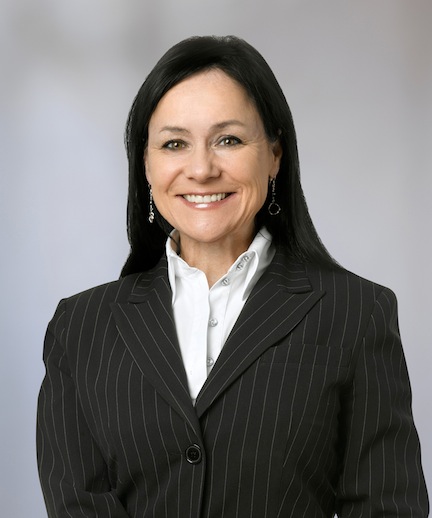Suzanne Côté has been named to the Supreme Court of Canada, bringing the number of women judges on the highest court to four.

The Quebec trial lawyer has been head of the Montreal litigation group at Osler Hoskin & Harcourt LLP since joining the firm in 2010. She is the first woman from private practice to be directly appointed to the Supreme Court.
“The justice system and all Canadians will be well served by the high calibre of today’s appointment to the Supreme Court,” said Michele Hollins, president of the Canadian Bar Association in a statement released today. “Suzanne Côté brings expertise in commercial litigation directly from her more than three decades in practice most recently at Oslers and Stikeman Elliott before that.”
Côté has gained extensive expertise in civil and commercial litigation over a distinguished 34 year career. Côté was also working as independent counsel in the Canadian Judicial Council inquiry into the Lori Douglas affair.
Her appointment on Dec. 1 means the court is at its full complement following the retirement of Justice Louis LeBel.
“We wish Justice LeBel well as he moves off the Bench and into his well-deserved retirement,” says Hollins.
In its statement, the CBA said it “looks forward to continuing to collaborate with the government on the nomination process to the highest court.”
Earlier this year, the Supreme Court
rejected Prime Minister Stephen Harper’s choice of Marc Nadon, saying he didn’t meet its eligibility criteria.
Speaking at the South Asian Bar Association awards dinner Thursday night, federal Liberal leader Justin Trudeau referred to Côté's appointment: “I unreservedly congratulate Suzanne Côté’s appointment today to replace justice LeBel, but the process was unnecessarily opaque.
“Mr. Harper appointed an excellent justice and finally restored the gender balance in the court that existed under the Liberal government. The result is excellent, the process is flawed.”
He added: “Achieving diversity on the bench becomes ever more challenging when government refuses to collect and share the data needed to assess progress. Securing public trust in the judiciary is similarly compromised when the selection process is shrouded in secrecy.
Trudeau said that at a time “when we can track in real time the number of people watching cat videos on YouTube, the fact we know so little about those selected to administer justice is absurd.”
Each year, he says courts in the United Kingdom publish a complete breakdown of judicial diversity statistics including gender, ethnicity and age.
“This isn’t a secret document only those who know how to execute freedom of information requests can acquire. It’s posted every year on their web site.”
In a statement Osler expressed its congratulations to Côté calling her a “trailblazer in litigation and advocacy throughout her exceptional career.”
Deborah Glendinning, chairwoman of Osler’s national litigation department told
Legal Feeds she recruited Côté from Stikeman Elliott LLP. Together they worked on the tobacco class action in Canada on behalf of client Imperial Tobacco.
“It’s such a great honour for her and for our firm, but on a personal note it’s sad because she will definitely be missed,” says Glendinning.
“She’s very motivated, has tremendous initiative, is smart, practical, and tactical and loves what she does. You can tell when you meet her — she exudes confidence and capability and people are drawn to her because of it,” she says.
Glendinning says the fact Côté has been appointed right from private practice is important because she will bring a perspective to the court that others with an academic or appellate court background don’t have. As the SCC is taking on more business and commercial issues understanding how those decisions play out in practical terms is going to be critical.
“She deals with business issues every single day and sees how decisions that come down from the courts really play out in practical terms, so she will have that definite appreciation for the business implications and ramifications being made by the highest court. I think that’s a tremendous insight and perspective to bring to these issues.”
Côté earned her law degree at the Université Laval and was admitted to the bar in 1981. She has also lectured at the Université du Québec à Rimouski and the Université de Montréal.
Update Nov. 28: Comments from Deborah Glendinning and federal Liberal leader Justin Trudeau added.

 The Quebec trial lawyer has been head of the Montreal litigation group at Osler Hoskin & Harcourt LLP since joining the firm in 2010. She is the first woman from private practice to be directly appointed to the Supreme Court.
The Quebec trial lawyer has been head of the Montreal litigation group at Osler Hoskin & Harcourt LLP since joining the firm in 2010. She is the first woman from private practice to be directly appointed to the Supreme Court.